There are educators everywhere working to teach the next generation of sustainability minded students. Whether in formal settings (K-12, undergraduate, graduate) settings or informally as science communication now it is more important than ever to work towards advancing Conservation Tech education.
The United Nations released the 17 Sustainable Development Goals (SDGs) which have served as a framework for educators in this space. Educating with a sustainable focus is a challenge whether you are interested in engineering, public policy, AI, or behavioral biology and we hope that this group will help you grow and exchange your ideas with other current and future educators.
This WILDLABS group has been set up by folks who are working to develop education toolkits, platforms, modules, and more in the conservation space. These tools can be at any level of development.
We hope you will become part of this group to share case studies, exchange ideas, and work towards developing a curriculum for future conservation tool crafters.
Current Examples of Conservation Tech Education Resources:
CV4Ecology Summer Workshop:
- Website for Summer Camp Information,
- Applications Due December 15th for next cohort
- 2022 Material including Syllabus, Lectures, Invited Talks, Final Presentations
Tech Tutors from WILDLABS
- TechTutors Season 1, WILDLABS
- TechTutors Season 2, WILDLABS
- TechTutors Season 3, WILDLABS
Want to know more about Conservation Technology education resources? Make sure to join the conversation in the WILDLABS Conservation Tech Training and Education group.
Additional Conservation Tech Courses:
- Tech4Wildlife @ Georgia Tech – Interdisciplinary and Project Based course on Conservation Technology
- MSc Wildlife Conservation Tech – Liverpool John Moores University Program
Group curators
- @StreamingScience
- | he/him/his
Georgia Institute of Technology
Andrew’s always looking to find new interdisciplinary teams in the conservation tech space. He is a postdoctoral researcher at Max Planck Institute, who completed his PhD at Georgia Tech in 2022. His interests including conservation tech education and engineering work.



- 0 Resources
- 14 Discussions
- 3 Groups
- @sstathat
- | she/her
Suzanne’s drive to protect the natural world led her to graduate school at Caltech. She is a Computing and Mathematical Sciences PhD student, advised by Pietro Perona. Her interests include leveraging machine learning and computer vision techniques to solve ecological problems.



- 0 Resources
- 3 Discussions
- 7 Groups
- @cshriver
- | she/her/hers
Georgia Institute of Technology
PhD student in Quantitative Biosciences
- 0 Resources
- 0 Discussions
- 3 Groups
Sustainability Manager for CERES Tag LTD. An animal health company; animal monitoring, conservation, & anti-poaching/ rural crime. Wildlife, livestock, equine & companion. #CeresTrace #CeresWild #CeresRanch





- 2 Resources
- 19 Discussions
- 24 Groups
Wildlife Drones
Wildlife Drones has developed the world’s most innovative radio animal-tracking system using drones so you can track your radio-tagged animals like never before.


- 11 Resources
- 8 Discussions
- 32 Groups
- @Kavutha
- | Her/She

- 0 Resources
- 1 Discussions
- 7 Groups
- @HollyCormack
- | she/her
Biodiversity Knowledge Management Intern at the Biodiversity Consultancy Ltd


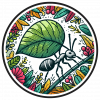
- 6 Resources
- 5 Discussions
- 6 Groups
- @jcaris
- | hi/him
Smith College & Cummings School of Veterinary Medicine at Tufts University
Senior Drone Data Scientist, Tufts University; Former Director of the Spatial Analysis Lab at Smith College. Teaching, learning, and collaborating with brilliant students & faculty
- 0 Resources
- 0 Discussions
- 9 Groups
- @ZoeDagan
- | She/her
I'm Zoe, an ecologist at the intersection of SaaS, conservation, and community science. I build programs and advance projects that accelerate solutions to our most urgent climate and conservation challenges.

- 0 Resources
- 4 Discussions
- 10 Groups
I help conservation scientists spend less time on boring stuff.



- 0 Resources
- 24 Discussions
- 6 Groups
2023 Bachelor Degree Graduate from the College of African Wildlife Management, Mweka.

- 0 Resources
- 3 Discussions
- 14 Groups
FruitPunch AI
CTO and Founder of FruitPunch AI




- 0 Resources
- 4 Discussions
- 11 Groups
Wildlife Acoustics
Wildlife Acoustics is the leading provider of bioacoustics monitoring technology for biologists, researchers, and government agencies worldwide. Our customers study vocal wildlife and make impactful discoveries that expand our understanding of the planet.


- 6 Resources
- 2 Discussions
- 2 Groups
- 0 Resources
- 0 Discussions
- 10 Groups
- 0 Resources
- 0 Discussions
- 8 Groups
In 1987, sustainability was defined by the United Nations Brundtland Commission as “meeting the needs of the present without compromising the ability of future generations to meet their own needs.”In 1987,...
7 May 2024
Article
Read in detail about how to use The Inventory, our new living directory of conservation technology tools, organisations, and R&D projects.
1 May 2024
Article
The Inventory is your one-stop shop for conservation technology tools, organisations, and R&D projects. Start contributing to it now!
1 May 2024
Article
What better way to conclude InConversation Season 1: East Africa than by delving into the exciting yet complex world of #tech4wildlife innovation across the region. This episode is going to be double the insight and...
30 April 2024
The North Carolina Zoo seeks a dynamic, motivated and progressive individual to serve as the Associate Curator of International Conservation within the zoos’ Conservation, Education and Science (CES) program. The...
29 April 2024
Careers
The Smithsonian National Zoo & Conservation Biology Institute is seeking a Program Manager to help coordinate multiple organizations in an effort to integrate movement data & camera trap data with global...
22 April 2024
Watch our interview with pioneering young Tanzanian vulture researcher Vainess Laizer! Her research investigating the breeding success of white-backed vultures in the western corridor of the Serengeti ecosystem using...
16 April 2024
Space for Giants is looking for a Conservation Science Intern to help support the Conservation Science team in managing data flow, storage, and analysis to maximize the efficiency of monitoring and evaluating impact.
9 April 2024
Catch up on the conservation tech discussions and events that happened during World Wildlife Day 2024!
7 March 2024
Do you know anyone interested in this position? Let them know by sharing widely.
27 February 2024
Careers
The SMART Partnership is hiring a Program Director to oversee all aspects of the partnership's operations
21 February 2024
We invite applications for the third Computer Vision for Ecology (CV4E) workshop, a three-week hands-on intensive course in CV targeted at graduate students, postdocs, early faculty, and junior researchers in Ecology...
12 February 2024
July 2024
event
August 2024
October 2024
May 2024
April 2024
event
3 Products
0 R&D Projects
5 Organisations
Recently updated products
Recently updated organisations
| Description | Activity | Replies | Groups | Updated |
|---|---|---|---|---|
| Hi Emma,Thank you for your outline. Feel free to send me an outline ( I sent you my email in a private WildLabs message ), but from your description I would like to give two... |
|
Community Base, Conservation Tech Training and Education, Early Career | 6 minutes 33 seconds ago | |
| Hi Andew,Whatever became of your book? Also have you seen jupyterbook.org and mystmd.org? Both are free and open source software for publishing articles and books.Best,Vance |
|
Conservation Tech Training and Education | 2 weeks 6 days ago | |
| Congratulations! My first hydromoth was just arrived yesterday and so excited! Looking forward for the update from your project!!! |
|
Acoustics, Biologging, Climate Change, Conservation Tech Training and Education, Data management and processing tools, Emerging Tech, Open Source Solutions, Protected Area Management Tools, Sensors, Software and Mobile Apps | 3 weeks 6 days ago | |
| Thank you Robyn. Sure I will send more information to your email |
|
Citizen Science, Acoustics, Conservation Tech Training and Education, Human-Wildlife Conflict | 1 month ago | |
| I got assistance. super grateful! |
|
Climate Change, Community Base, East Africa Community, Conservation Tech Training and Education | 1 month 1 week ago | |
| Can't beat Dan's list! I would just add that if you're interested in broader protected area management, platforms like EarthRanger and SMART are amazing, and can integrate... |
|
Data management and processing tools, Camera Traps, Conservation Tech Training and Education | 1 month 1 week ago | |
| Sounds good. Just sent you a private message. |
|
Climate Change, Conservation Tech Training and Education, Sensors | 1 month 2 weeks ago | |
| Hi @Alasdair Great to hear from you! Thanks for the comment and for those very useful links (very interesting). And for letting @Rob_Appleby know. I can't wait to hear... |
|
Emerging Tech, Camera Traps, Conservation Tech Training and Education | 1 month 4 weeks ago | |
| Hi all,We've extended the Computer Vision for Ecology (CV4E) 2025 winter workshop application deadline to Monday, April 1st.More info on... |
|
Conservation Tech Training and Education | 1 month 4 weeks ago | |
| We could always use more contributors in open source projects. In most open source companies Red Hat, Anaconda, Red Hat and Mozilla, people often ended up getting hired largely... |
|
Acoustics, AI for Conservation, Conservation Tech Training and Education, Early Career, Marine Conservation | 2 months ago | |
| I actually will be in Panama for an internship during June-July in the Azuero peninsula!! What organization are you both involved in? |
|
Conservation Tech Training and Education, Early Career, Women in Conservation Tech Programme (WiCT) | 2 months ago | |
| Thank you Carly, I will definitely take a look. |
|
Acoustics, Biologging, Climate Change, Conservation Tech Training and Education, Data management and processing tools, Remote Sensing & GIS, Software and Mobile Apps | 2 months 1 week ago |
Thoughts on new MSc in Conservation Technology
24 May 2024 3:54pm
28 May 2024 5:42pm
Hi Emma,
Have you spoken to Kate Jones? She would be happy to speak with you about her team's work developing the MSc Ecology and Data Science at UCL, which sounds incredible and comprehensive. This MSc is the best conservation tech programme I've heard about so far, so it would be worth chatting to her team!
Steph
29 May 2024 12:14am
Hi Emma,
Thank you for your outline. Feel free to send me an outline ( I sent you my email in a private WildLabs message ), but from your description I would like to give two comments already,
1) Besides learning about these technologies, the course should in my view also include learning the skills of finding out about new technologies and assessing them. The list of technologies that you are giving seems state of the art, but in the course of the students career it is likely to change completely a couple of times over. Much of what is on the list would not be there ten years ago. Even only three years ago AI (as we now think of it ) would probably not be on the list, but ML would.
2) Perhaps you were planning this already, but when it comes to 'correct use and validation', in my mind, that should definitely include the social/societal aspects of these technologies, no matter if it is about use in the global North or global South. What I am after is Technology Assessment.
Hopefully, this is of use to you
cheers
Frank
Introduction to CT Textbook
22 November 2022 10:43am
9 December 2022 11:45am
yes this is an excellent point. I love what the WILDLABS group did with the state of conservation tech report. Thanks for the example.
16 January 2023 2:51pm
This would be awesome Andrew! Happy to help with some organization of this/identifying potential chapter authors.
I'm sure you know about this already, but there is also this book from Wich & Piel: https://www.amazon.com/Conservation-Technology-Serge-Wich/dp/0198850255
8 May 2024 4:19pm
Hi Andew,
Whatever became of your book? Also have you seen jupyterbook.org and mystmd.org? Both are free and open source software for publishing articles and books.
Best,
Vance
Voices of Sustainability: Perspectives from - Africa Wholesome Sustainability Explained: What is E-PIE
7 May 2024 3:06am
WILDLABS AWARDS 2024 - Underwater Passive Acoustic Monitoring (UPAM) for threatened Andean water frogs
30 March 2024 3:54pm
5 April 2024 12:13pm
Congratulations, very exciting! Keep us updated!
7 April 2024 6:09pm
This is so cool @Mauricio_Akmentins - congrats and look forward to seeing your project evolve!
1 May 2024 5:17pm
Congratulations! My first hydromoth was just arrived yesterday and so excited! Looking forward for the update from your project!!!
The Inventory User Guide
1 May 2024 12:46pm
Introducing The Inventory!
1 May 2024 12:46pm
2 May 2024 3:08pm
3 May 2024 5:33pm
17 May 2024 7:29am
Delving into #tech4wildlife Innovation across East Africa with Sandra Maryanne & Catherine Njore
 Esther Githinji
Esther Githinji
30 April 2024 11:37am
Job Opening: Associate Curator of International Conservation at North Carolina Zoo
29 April 2024 9:17pm
WILDLABS AWARDS 2024 - Fostering bat conservation and citizen science in Zimbabwe: Establishing bat groups and training individuals to use bat detectors
4 April 2024 12:12pm
8 April 2024 9:29am
Thank you Carly!
We have over 60 bats recorded in Zimbabwe
19 April 2024 2:16pm
Abigail. I would love to know more and potentially support the initiative. Please send me more info on [email protected]
24 April 2024 2:27pm
Thank you Robyn. Sure I will send more information to your email
Program Manager: Integrating movement and camera trap data with international conservation policy
22 April 2024 10:16pm
Involve our young learners in climate change action.
27 March 2024 3:24pm
5 April 2024 4:01pm
Hi Cathy
I can't help personally but on seeing your post reached out to a contact who's previously been involved in the British Cartographic Society in case they had any ideas. Their advice:
"I would suggest that she becomes a member of British Cartographic Society (£45 or so) and then writes for/becomes an editor. Then, she will be able to apply for a funding budget for travel... as long as she also writes about the conference! It's a bit long winded, but I am sure that just being an Editor would be an advantage to her anyway."
I hope that helps (or that you find an easier way to get to the conference :D ) - good luck!
Here's their website -
6 April 2024 7:50pm
Thank you so much for this!
18 April 2024 11:40pm
I got assistance. super grateful!
Camera Trap storage and analyzing tools
16 April 2024 5:15pm
16 April 2024 7:17pm
I don't have an easy solution or a specific recommendation, but I try to track all the systems that do at least one of those things here:
https://agentmorris.github.io/camera-trap-ml-survey/#camera-trap-systems-using-ml
That's a list of camera trap analysis / data management systems that use AI in some way, but in practice, just about every system available now uses AI in some way, so it's a de facto list of tools you might want to at least browse.
AFAIK there are very few tools that are all of (1) a data management system, (2) an image review platform, and (3) an offline tool. If "no Internet access" still allows for access to a local network (e.g. WiFi within the ranger station), Camelot is a good starting point; it's designed to have an image database running on a local network. TRAPPER has a lot of the same properties, and @ptynecki (who works on TRAPPER) is active here on WILDLABS.
Ease of use is in the eye of the beholder, but I think what you'll find is that any system that has to actually deal with shared storage will require IT expertise to configure, but systems like Camelot and TRAPPER should be very easy to use from the perspective of the typical users who are storing and reviewing images every day.
Let us know what you decide!
17 April 2024 1:55am
Can't beat Dan's list!
I would just add that if you're interested in broader protected area management, platforms like EarthRanger and SMART are amazing, and can integrate with camera-trapping (amongst other) platforms.
Lotek Telemetry Talks Presents: Tagging Owls – Tips & Tricks from the Experts
16 April 2024 8:26pm
Starting a Conservation Technology Career with Vainess Laizer
 Esther Githinji
Esther Githinji
16 April 2024 1:34pm
Seeking Knowledge/Resources about Soil Monitoring
10 April 2024 9:53pm
12 April 2024 2:32pm
Hi Frida.
We are currently doing soil monitoring for ecological restoration in Australia with an organization called Bush Heritage Australia. It's been ongoing for about four years and it's in collaboration with BHA and also Monash University's soil science department. There's more info about the project here:
14 April 2024 12:21am
Hi! If you wouldn't mind, would we be able to exchange emails and connect? I'd love to have a short discussion and get some feedback regarding my senior project
14 April 2024 1:50pm
Sounds good. Just sent you a private message.
Conservation Science Intern - Space for Giants, Nanyuki
9 April 2024 8:55am
Blind Spots in Conservation Tech Management in Remote Landscapes: Seeking Your Input
20 March 2024 10:51am
22 March 2024 9:48am
Hi @lucianofoglia
Thanks for sharing your thoughts with the community. What you've touched on resonates with a number of users and developers (looking at you @Rob_Appleby) who share similar concerns and are keen to address these issues.
As a beliver in open sourcing conservation technologies, to mitigate issues you've noted (maintenance of technologies / solutions, repairability, technical assistance to name but a few), really the only way to achieve this in my eyes is through the promotion of openness to enable a wide range of both technical and non-technical users to form the pool of skills needed to react to what you have stated. If they can repair a device, or modify it easily, we can solve the waste issue and promote reusability, but first they need access to achieve this and commerical companies typically shy away from releasing designs to protect against their IP that they keep in house to sell devices / solutions.
I would think for an organisation to achieve the same the community would need to help manufacturers and developers open and share hardware designs, software, repairability guides etc, but the reality today is as you have described.
One interesting conversation is around a kitemark, i.e a stamp of approval similar to the Open Source Hardware Association's OSHWA Certification), but as it's not always hardware related, the kitemark could cover repairability (making enclosure designs open access, or levels of openness to start to address the issue). Have a look at https://certification.oshwa.org/ for more info. I spent some time discussing an Open IoT Kitemark with http://www.designswarm.com/ back in 2020 with similar values as you have described - https://iot.london/openiot/
You may want to talk more about this at the upcoming Conservation Optimism Summit too.
Happy to join you on your journey :)
Alasdair (Arribada)
30 March 2024 3:57pm
Hi @Alasdair
Great to hear from you! Thanks for the comment and for those very useful links (very interesting). And for letting @Rob_Appleby know. I can't wait to hear from her.
Open source is my preference as well. And it's a good idea. But, already developing the tech in house is a step ahead from what would be the basic functional application of an organization that could manage the tech for a whole country/region.
I have witnessed sometime how tech have not added much to the efficiency of local teams but instead being an tool to promote the work of NGOs. And because of that then innovative technologies are not developed much further that a mere donation (from the local team's perspective). But for that tech to prove efficient, a lot more work on the field have to be done after. The help of people with expertise in the front line with lots of time to dedicate to the cause is essential (this proves too expensive for local NGOs and rarely this aspect is consider).
I imagine this is something that needs to come from the side closer to the donors and International NGOs. Ideally only equipment can be lend within a subscription model and not just donated without accountability on how that tech is use. Effectively the resources can be distributed strategically over many projects. Allowing to tech to be repurposed.
Sorry that I step down the technical talk, the thing is that sometimes the simplest things can make the most impact.
It would be good to know if any in the community that have spent considerable time working in conservation in remote regions, and have observed similar trends.
Thanks! Luciano
CV4E 2025 application deadline extended
29 March 2024 6:28am
Applying Open-Source AI to Camera Trap Imagery
27 March 2024 4:34pm
AI for Conservation!
4 March 2024 8:51pm
22 March 2024 12:29pm
Welcome, Have you considered participating in any of the AI for Good challenges. I find it is good way to build a nice portfolio of work. Also contributing to existing open source ML projects such as megadetector or to upstream libraries such as PyTorch is good way to getting hired.
22 March 2024 5:57pm
Thank you for the tip! I'll definitely consider contributing to open source projects and taking part in challenges :)
25 March 2024 5:22am
We could always use more contributors in open source projects. In most open source companies Red Hat, Anaconda, Red Hat and Mozilla, people often ended up getting hired largely due to their contributions on open source projects. These contributions were both technical such as writing computer code and non-technical such as writing documentation and translating tools in their local language.
Recording Orthoptera Sounds: International Workshop (Italy)
22 March 2024 9:25pm
Introduction + Mentorship/Research Partnership
20 March 2024 1:41am
20 March 2024 2:14pm
Me and @Hubertszcz are working on biodiversity monitoring for habitat restoration on the Azuero penninsula in August. I don't have any like paid research opportunities i know of myself, but if you find yourself in panama, im sure they can use help!
22 March 2024 2:28pm
I actually will be in Panama for an internship during June-July in the Azuero peninsula!! What organization are you both involved in?
Leveraging Actuarial Skills for Conservation Impact
15 March 2024 12:31pm
19 March 2024 6:35pm
Thank you for your response Akiba. I will have a look. 👏🏻
19 March 2024 7:52pm
I would look into the TNFD (Taskforce on Nature-Related Disclosures), Finance for Biodiversity, Accounting for Nature, etc. which are all focusing on how to incorporate nature risk into corporate reporting and sustainability frameworks!
20 March 2024 3:48pm
Thank you Carly, I will definitely take a look.
Here's what you missed at World Wildlife Day 2024
7 March 2024 9:02pm
15 March 2024 2:42pm
A PHD POSITION AT NOTTINGHAM TRENT UNIVERSITY
27 February 2024 9:42am
SMART Partnership Director
21 February 2024 4:32pm
Exploring an ethical reflection tool for animal-focused tech (Survey)
13 February 2024 8:22pm
Computer Vision for Ecology Workshop 2025 Call for Applications
12 February 2024 9:29pm
Bio-Logging Science Symposium
9 February 2024 3:59pm
Southern African Wildlife Management Association Conference 2024
6 February 2024 12:20pm










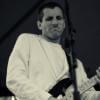













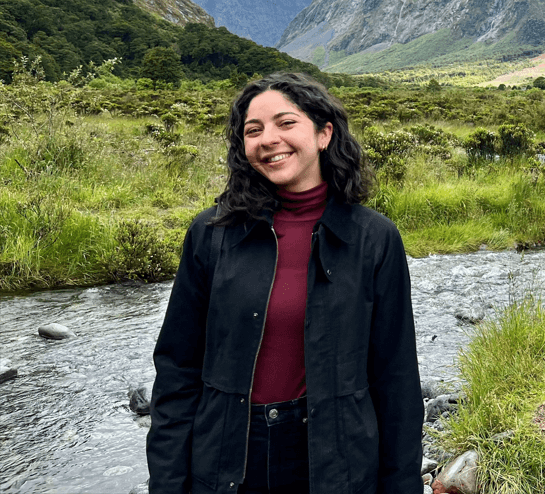









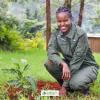







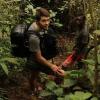















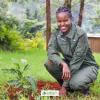





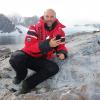

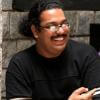

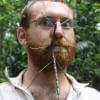
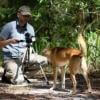





28 May 2024 3:35pm
Hello @Frank_van_der_Most ,
Thank you for your reply.
The idea of the MSc course would be to cover the use of conservation technology (camera traps, satellites, UAVs, LiDAR, TLS, acoustic monitoring, microclimate monitoring, AI, cloud computing etc.), and their correct use and validation, for ecology conservation. The course would run out of the Department of Biological and Forensic Science at the University of South Wales. The course would include modules in ecology and conservation, computing and AI and then specific remote sensing and earth observation modules, for example.
The course would not be linked specifically to a particular research project, but students would have the opportunity to contribute to research projects within the university.
I would be happy to send a course outline via email, if you wish. Any comments and thoughts would be very much appreciated. At present we are putting a case together to the university to support such a course, and as part of this would need sector, expert and employer thoughts on the course, whether it would be valuable, for example.
I would be happy to send an outline of the course to your email?
Thank you,
Emma